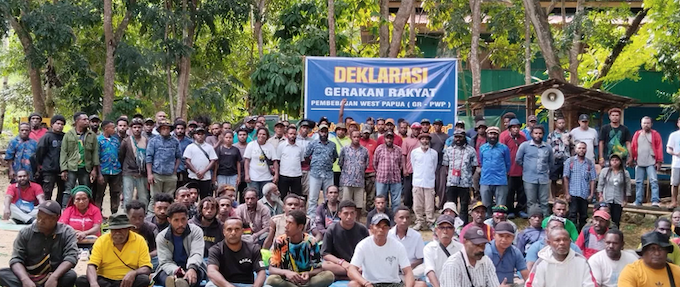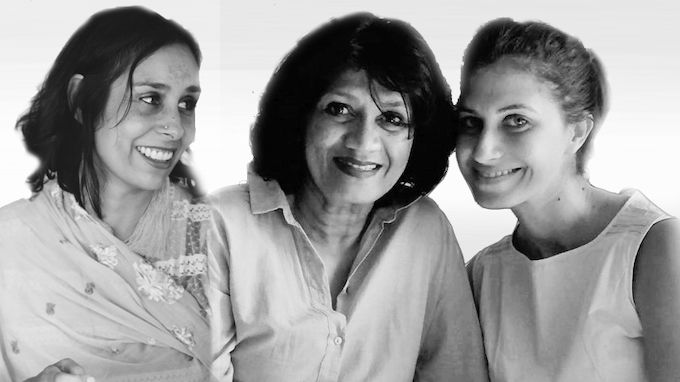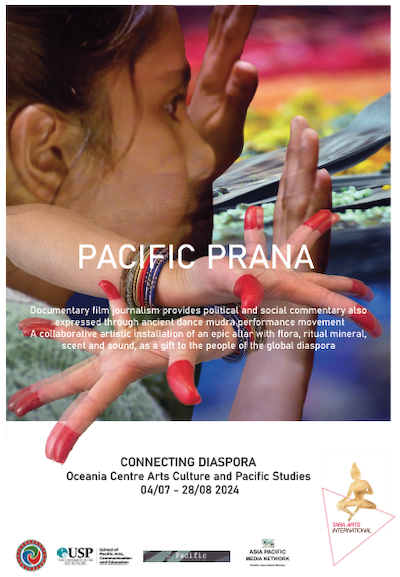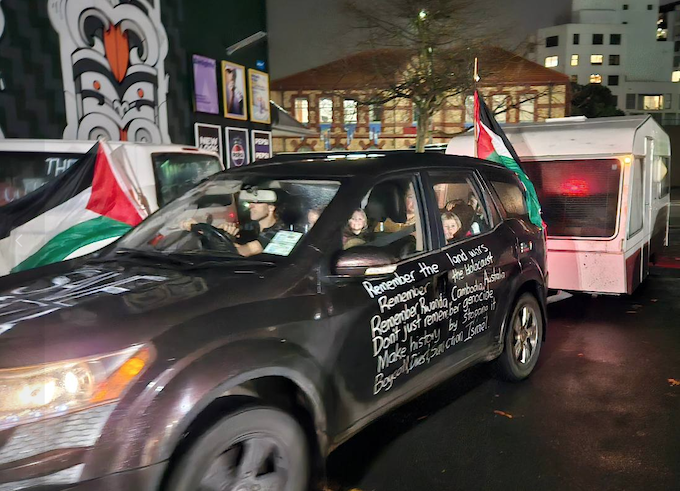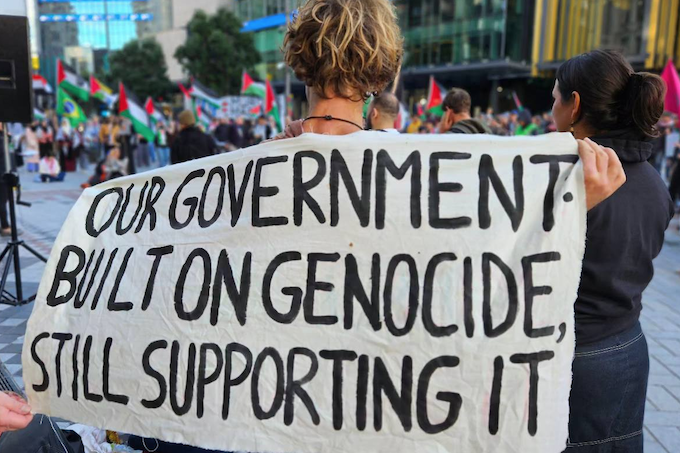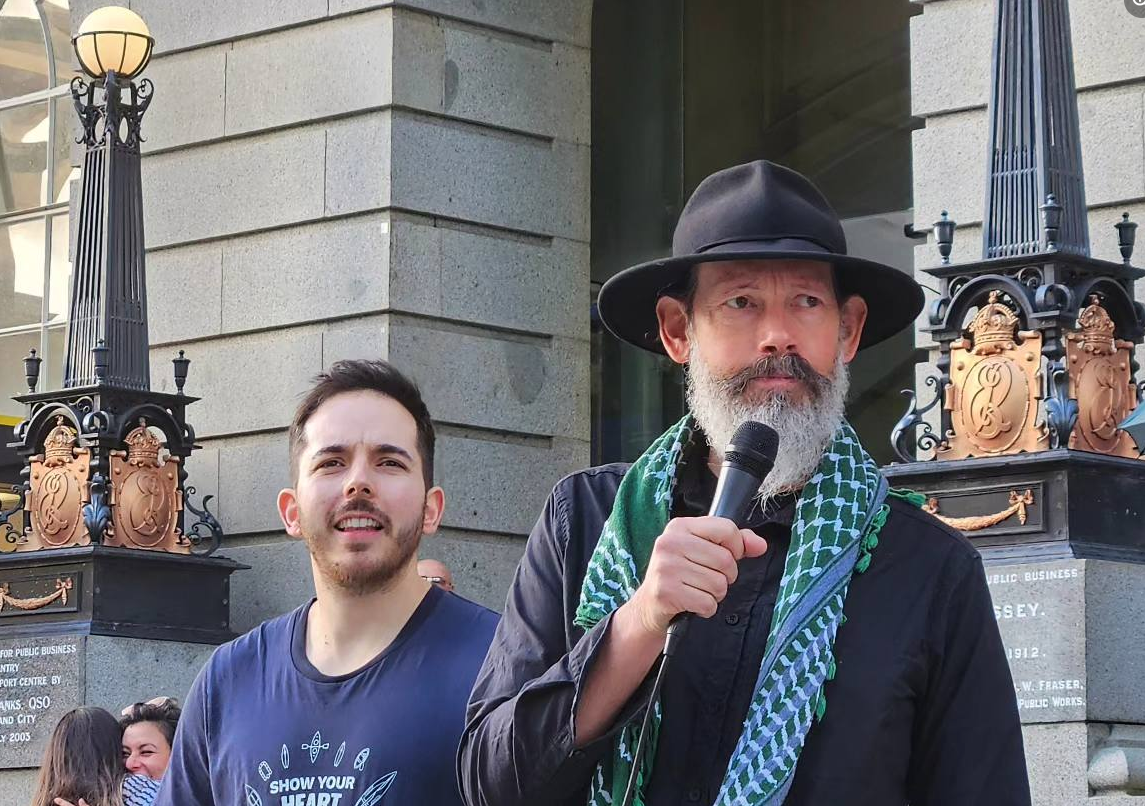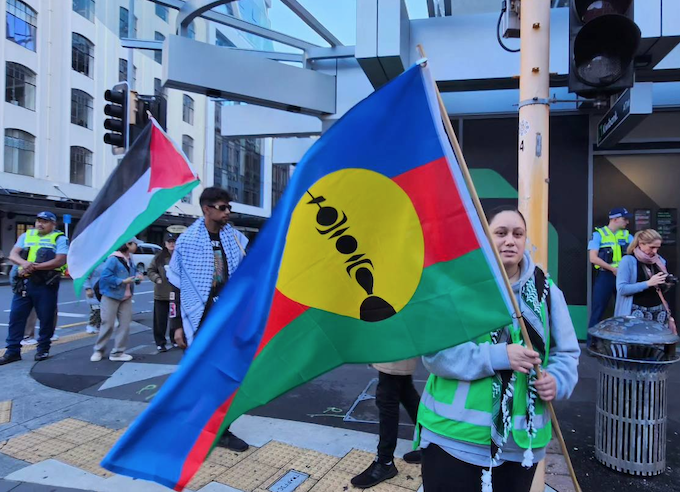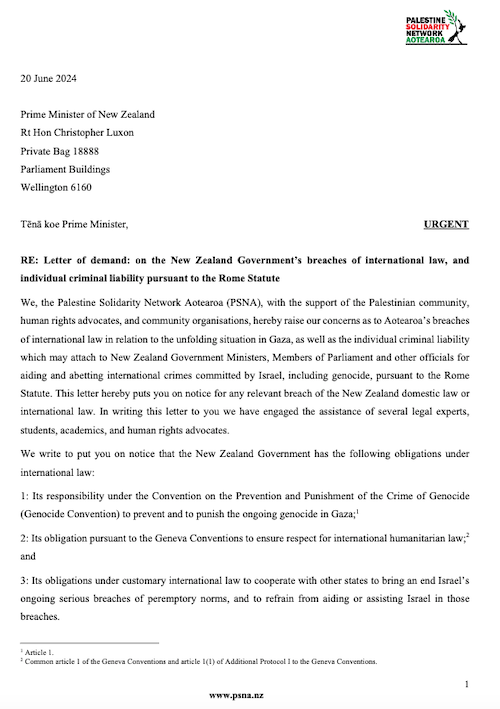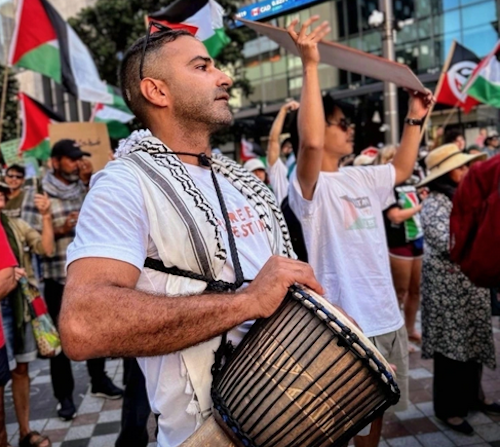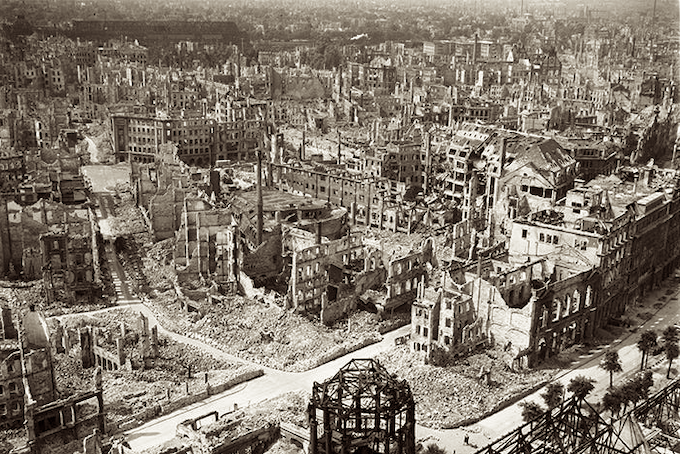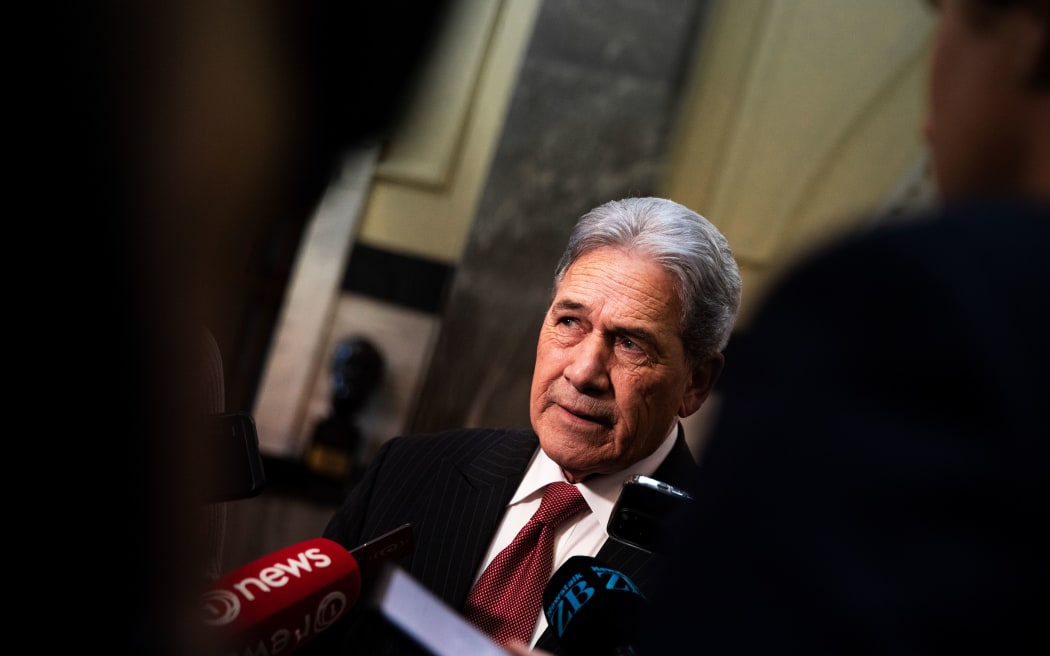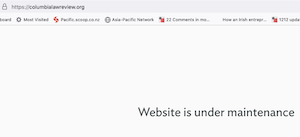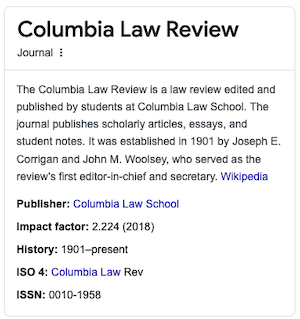Pacific Media Watch
Pacific Journalism Review founder Dr David Robie says PJR has published more than 1100 research articles over its three decades of existence and is the largest single Pacific media research repository.
But it has always been “far more than a research journal”, he added at the launch of the 30th anniversary edition at the Pacific International Media Conference in Fiji yesterday.
Speaking in response to The University of the South Pacific’s adjunct professor in development studies and governance Vijay Naidu who launched the edition, he spoke of the innovative and cutting edge style of PJR.
- WATCH NBC NEWS: Launch of Pacific Journalism Review 30th edition
- READ MORE: Professor Vijay Naidu’s PJR launch comments
- Other Pacific Media 2024 reports
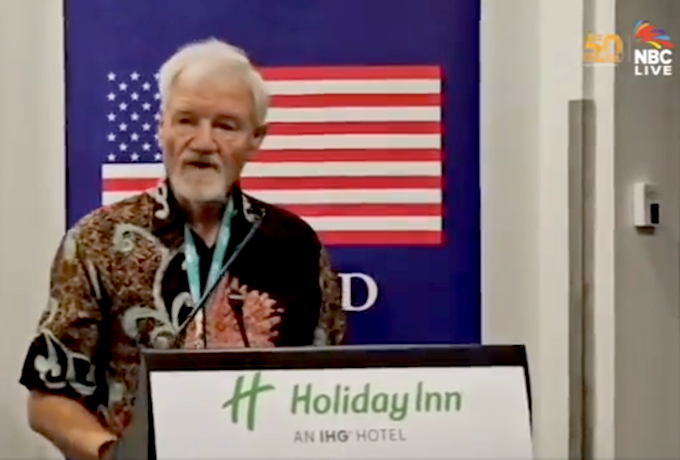
“As an independent publication, it has given strong support to investigative journalism, sociopolitical journalism, political economy of the media, photojournalism and political cartooning — they have all been strongly reflected in the character of the journal,” he said.
“It has also been a champion of journalism practice-as-research methodologies and strategies, as reflected especially in its Frontline section, pioneered by retired Australian professor and investigative journalist Wendy Bacon.
“Keeping to our tradition of cutting edge and contemporary content, this anniversary edition raises several challenging issues such as Julian Assange and Gaza.”
He thanked current editor Philip Cass for his efforts — “he was among the earliest contributors when we began in Papua New Guinea” — and the current team, assistant editor Khairiah A. Rahman, Nicole Gooch, “extraordinary mentors” Wendy Bacon and Dr Chris Nash, APMN chair Dr Heather Devere, Dr Adam Brown, Nik Naidu and Dr Gavin Ellis.
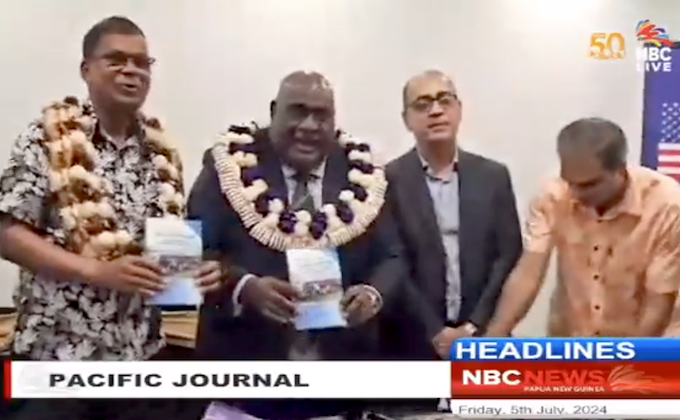
Paid tribute to many
He also paid tribute to many who have contributed to the journal through peer reviewing and the editorial board over many years — such as Dr Lee Duffield and Professor Mark Pearson of Griffith University, who was also editor of Australian Journalism Review for many years and was an inspiration to PJR — “and he is right here with us at the conference.”
Among others have been the Fiji conference convenor, USP’s associate professor Shailendra Singh, and professor Trevor Cullen of Edith Cowan University, who is chair of next year’s World Journalism Education Association conference in Perth.
Dr Robie also singled out designer Del Abcede for special tribute for her hard work carrying the load of producing the journal for many years “and keeping me sane — the question is am I keeping her sane? Anyway, neither I nor Philip would be standing here without her input.”
He also complimented AUT’s Tuwhera research publishing platform for their “tremendous support” since the PJR archive was hosted there in 2016.
The new book, Waves of Change: Media, Peace, and Development in the Pacific, was also launched at the event.
- Launch of Pacific Journalism Review 30th edition (@01:20). FB video: NBC News
Meanwhile, New Zealand media analyst and commentator Dr Gavin Ellis mentioned the Pacific Journalism Review milestone in his weekly Knightly Views column:
On a brighter note
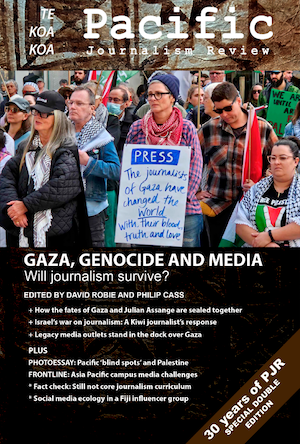
This month marks the 30th anniversary of Pacific Journalism Review, the journal founded and championed by journalist and university professor David Robie. PJR has provided a unique bridge between academics and practitioners in the study of media and journalism in our part of the world.
The journal is now edited by Dr Philip Cass, although Robie continues to be directly involved as associate editor and editorial manager. The latest edition (which they co-edited) explores links between journalists in the South Pacific with the conflict in Gaza, together with analysis of the wider role of media in coverage of the plight of Palestinians.
A special 30th anniversary printed double issue is being launched at the Pacific International Media Conference in Fiji. The online edition of PJR is now available here.
Sustaining a publication like Pacific Journalism Review is no easy feat, and it is a tribute to Robie, Cass and others associated with the journal that it is entering its fourth decade strongly and with challenging content.
- Launch of Pacific Journalism Review 30th edition (@01:20). Video: NBC News
This post was originally published on Asia Pacific Report.


